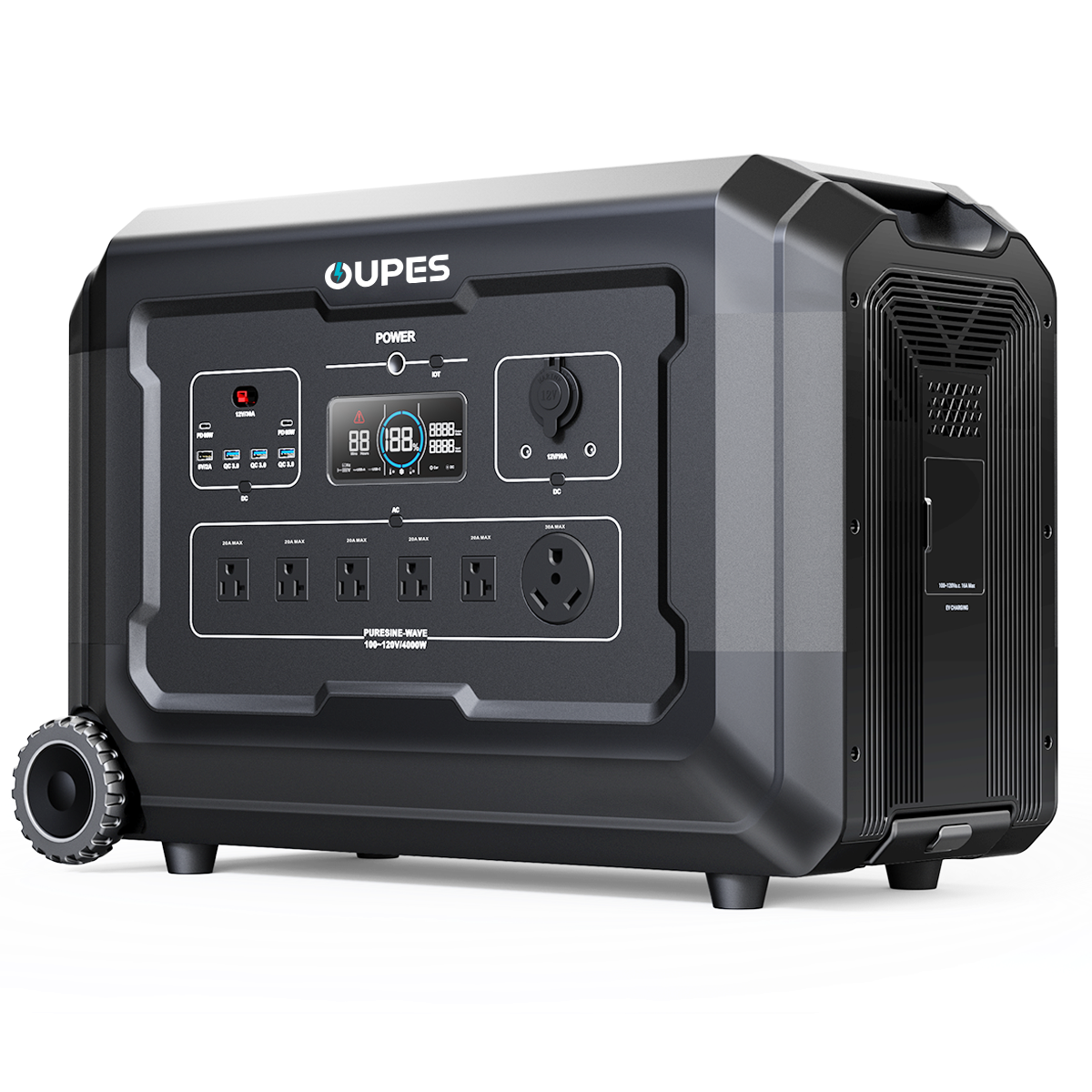
Power outages can be disruptive, leaving homeowners in the dark and without essential appliances. To combat this issue, many homeowners are turning to whole-house battery backup systems as a reliable source of emergency power. But a common question remains: how long does a whole-house battery backup last?
The answer depends on several factors, including the battery's capacity, the home's energy consumption, and whether renewable energy sources like solar panels are involved. In this article, we’ll explore the key elements that determine the lifespan and effectiveness of a whole-house battery backup system.
Factors That Determine How Long a Whole-House Battery Backup Lasts
The runtime of a whole-house battery backup depends on multiple variables, including battery capacity, household energy consumption, and whether the system is recharged through renewable sources. Understanding these factors can help homeowners maximize their battery backup performance.
Battery Capacity: The capacity of a battery is measured in kilowatt-hours (kWh). A typical whole-house battery backup ranges from 10 kWh to 20 kWh or more. The higher the capacity, the longer the battery can power essential appliances and devices.
Household Energy Usage: The longevity of a battery backup depends on the amount of electricity a home consumes. A household that only powers critical appliances, such as refrigerators, lights, and internet routers, will have a battery that lasts much longer than one running high-energy devices like HVAC systems and electric water heaters.
Rechargeability and Solar Integration: Some battery backup systems are paired with solar panels, allowing them to recharge during the day. This setup extends their usability indefinitely as long as the sun provides enough energy to replenish the battery.
By strategically managing power usage and integrating renewable energy sources, homeowners can optimize their battery backup system for prolonged use during outages.
How Different Battery Types Affect Backup Duration
Not all battery backup systems are created equal. The type of battery used in a whole-house backup system significantly impacts its efficiency, lifespan, and runtime. The most common types of batteries used for backup power include lithium-ion, lead-acid, and flow batteries.
Lithium-Ion Batteries: These are the most commonly used batteries in modern home backup systems. They offer high efficiency, longer lifespans (10-15 years), and faster recharge times. A 13.5 kWh lithium-ion battery can typically provide power for 8-24 hours, depending on energy consumption.
Lead-Acid Batteries: Older and more affordable, lead-acid batteries are less efficient and have a shorter lifespan (5-7 years). They require more maintenance and typically offer less usable capacity compared to lithium-ion batteries. As a result, they may provide only a few hours of backup power for an entire home.
Flow Batteries: These batteries use liquid electrolytes to store energy, providing a longer lifespan and deeper discharge capabilities. While they are still being developed for residential use, they have the potential to provide extended backup power for longer durations compared to lithium-ion and lead-acid batteries.
The type of battery chosen for a home backup system plays a critical role in determining how long it will last during an outage. Lithium-ion batteries remain the best option for most homeowners due to their efficiency and durability.
Maximizing the Lifespan and Efficiency of a Whole-House Battery Backup
To get the most out of a whole-house battery backup, homeowners should follow best practices to extend the battery’s lifespan and improve its efficiency. Proper maintenance and smart energy usage can make a significant difference in performance.
Prioritize Essential Appliances: Running high-energy appliances like electric ovens, washing machines, and HVAC systems can quickly deplete a battery backup. Homeowners should prioritize essential items like refrigerators, lights, and medical devices during outages.
Monitor Battery Health: Many modern battery systems include monitoring apps that allow homeowners to track energy usage and battery health. Regularly checking these insights can help optimize power consumption and detect any potential issues early.
Regular Maintenance: While lithium-ion batteries require minimal maintenance, lead-acid batteries need periodic water level checks and cleaning to prevent corrosion. Keeping a battery system well-maintained ensures it operates efficiently for its intended lifespan.
Use Solar Power for Recharging: Integrating a battery backup system with solar panels can dramatically extend its runtime. During the day, solar energy can recharge the battery, ensuring continuous power even during prolonged outages.
By managing energy usage wisely and maintaining the battery properly, homeowners can maximize the longevity and performance of their backup system.
Real-World Scenarios: How Long Will a Whole-House Battery Last?
The actual runtime of a whole-house battery backup varies based on different household needs and energy usage patterns. Let’s look at a few real-world examples to estimate how long a battery might last in different situations.
Basic Emergency Backup: A 10-15 kWh battery can keep essential appliances like a refrigerator, lights, and a Wi-Fi router running for 12-24 hours, depending on energy efficiency.
Moderate Power Use: A home that uses more appliances, including a TV, laptop, and kitchen essentials, may deplete a 13.5 kWh battery in 6-12 hours.
Whole-Home Power Supply: If a household runs heating and cooling systems, water heaters, and multiple appliances, even a high-capacity battery may only last 3-6 hours before needing a recharge.
Solar-Powered Battery Backup: When combined with a solar panel system, a battery backup can recharge during the day and extend power indefinitely, as long as the sun provides enough energy.
The key takeaway is that battery backup duration is highly dependent on energy consumption and whether renewable energy is available to extend its use.
Conclusion
The longevity of a whole-house battery backup depends on multiple factors, including battery capacity, household energy consumption, and whether the system is paired with solar energy. While a standard battery may last anywhere from a few hours to a full day, integrating solar panels can provide a continuous source of power.
By selecting the right battery type, managing energy usage efficiently, and considering renewable energy solutions, homeowners can maximize the reliability and longevity of their backup system. Whether for short-term outages or extended emergencies, a well-maintained battery backup can provide peace of mind and uninterrupted power when it's needed most.




























